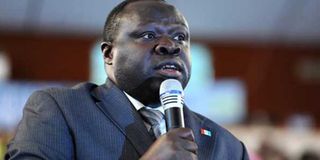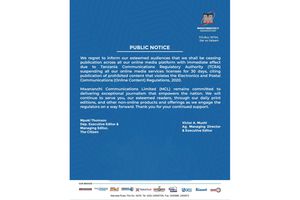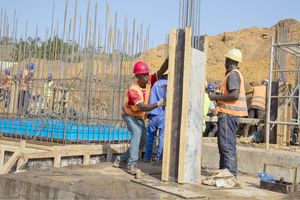EAC health sector gets over Sh200billion in major boost

EAC deputy secretary general for Productive and Social Sectors Christophe Bazivamo. Photo |File
Arusha. Development partners have pledged 83 million Euros for health sector investments in East Africa.
This was revealed on Thursday October 31 in Nairobi at the start of the second East African Community (EAC) ministerial and investors' roundtable in the health sector.
"We have so far been able to mobilize investments and secure commitments of 83m Euros", said Christophe Bazivamo, the EAC deputy secretary general for Productive and Social Sectors.
He said investments in the healthcare systems in the region were crucial for the wider economic development of the bloc.
"This is because ill health impairs productivity, hinders job prospects and adversely affects human capital development", he said.
The secured investment pledges follows Health Sector Investments Priorities Framework adopted by the regional leaders during their summit in Kampala early 2018.
According to the Rwanda minister of State in charge of Health Dr. Patrick Ndimubanzi, the EA region targets to mobilize $ 3.5 billion for the health sector priorities.
"As we invest in health, it is my conviction that our investments are made in strategic areas that offer maximum value for money", he stated.
Dr. Ndimubanzi, who is the current Chair of EAC Sectoral Council on Health, called for stronger partnerships involving the governments, civil society and the private sector to improve the health delivery services.
He specifically underscored the private sector's role as significant for the provision of health-related services, medicines and medical products, IT and infrastructure.
Dr. Anastasia Nyalita, the CEO of Africa Healthcare Federation said more than 40 per cent of health services delivery in the EA region are provided by non-state actors.
She said the disparity between the EAC partner states on policies and laws regulating manufacturing and importation of medicines and medical devices prevent the region from benefiting from the economies of scale.
She, therefore, called for a harmonized framework for medicines and medical devices regulation "that will accelerate the move towards realizing the Common Market vision".




